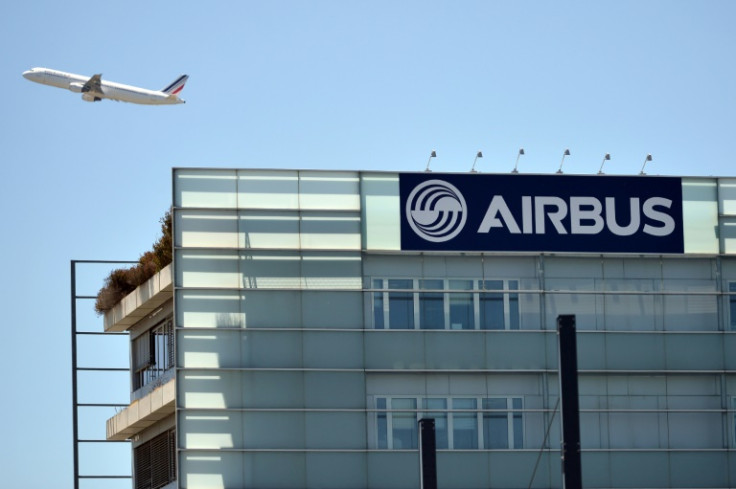Airbus Says Record 2,094 Planes Ordered In 2023, 735 Delivered

European planemaker Airbus said Thursday that it secured 2,094 net plane orders last year, a record for the group as airlines prepare for further global passenger growth and seek out more fuel-efficient planes.
The company also said that despite persistent supply chain problems it delivered 735 jets to clients last year, beating its own target of 720 and well above the 661 aircraft delivered in 2022.
New orders smashed Airbus's previous record from 2013 of 1,503 planes, continuing to reap the success of its popular A320 family for shorter flights and the A350 for long-haul routes.
After the Covid-19 pandemic, "We originally anticipated aviation to recover sometime in the 2023-2025 timeframe, but what we saw in 2023 was, alongside the single-aisle market, widebody return much sooner than expected, and with vigour", commercial chief Christian Scherer said in a statement.
Major contracts were racked up with airlines including India's low-cost IndiGo, which ordered 500 A320s -- the biggest civil aviation order in history -- as well as Air India (250 planes) and Turkish Airlines (230 planes).
"We have never sold as many A320s or A350s in any given year... Travel is back and there is serious momentum," he said.
The company's overall order backlog stood at 8,598 aircraft at the end of last year.
Airbus has begun development of a successor to the popular A320 family for the second half of the 2030s, and is aiming to launch a hydrogen-powered plane -- which would emit no CO2 -- toward 2035.
A320s made up the bulk of Airbus's deliveries, with 571 provided to clients last year, followed by 68 of the small A220s and 64 of the long-haul A350s.
The new orders outstripped those of US rival Boeing, which is facing renewed scrutiny, including an investigation by the US Federal Aviation Administration (FAA), of its new 737 MAX jet after a scare on an Alaska Airlines jet last week, when a fuselage panel came off mid-flight and forced an emergency landing.
Boeing also saw a rise in net orders last year, to 1,314 aircraft, mainly for the 737 MAX but also for its long-haul 787s.
Both airlines are benefiting from demand for less-polluting planes as the industry tries to meet its pledge of carbon neutrality by 2050, even as global air passenger traffic is forecast to roughly double during the same period.
In response, Airbus is investing heavily in production capacity, aiming to churn out 75 A320 planes each month starting in 2026, up from the 48 planes that rolled off assembly lines each month last year.
Airbus's Scherer was optimistic about the future as he said 70 percent of aircraft flying are still older generation.
"Yeah, that's a lot of airplanes to replace, never mind catering for growth," he said.
But Airbus is facing persistent problems from its network of around 18,000 suppliers, many of which are still struggling to recover from the Covid pandemic, as well as soaring inflation that has complicated securing materials.
Before Covid and the resulting lockdowns that battered industry worldwide, the company was producing 60 A320s a month.
© Copyright AFP 2025. All rights reserved.





















